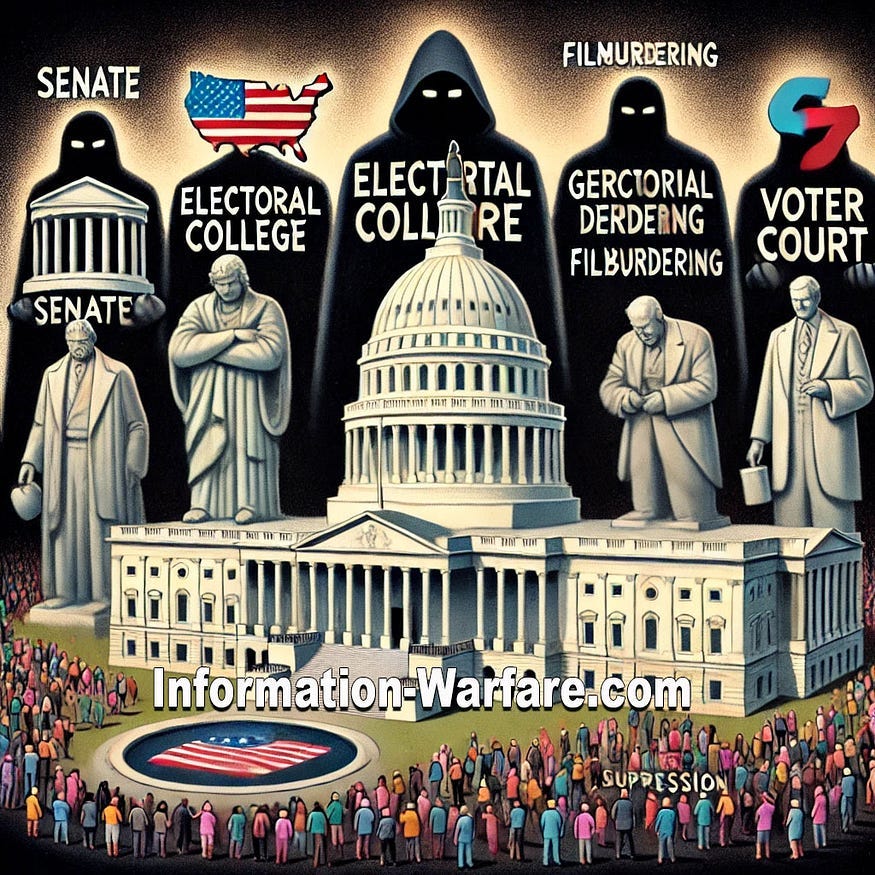Minority Rule Is Threatening American Democracy
The imbalance of power where a smaller segment of the population wields disproportionate influence over political decisions, laws, and governance.

The concept of “minority rule” threatening American democracy is a topic of significant concern and debate. This idea revolves around the imbalance of power where a smaller segment of the population wields disproportionate influence over political decisions, laws, and governance.
Here are some key points that illustrate how minority rule is manifesting and why it is perceived as a threat to American democracy:
Electoral College: The U.S. Electoral College system can result in a president being elected without winning the popular vote. This has happened in two of the last six presidential elections (2000 and 2016), leading to questions about the democratic legitimacy of the presidency.
Senate Representation: Each state, regardless of population size, has two senators. This means that less populous states have the same Senate representation as highly populous states, giving disproportionate influence to residents of smaller states. For example, the combined population of the smallest states with the same Senate representation as California (the most populous state) is significantly less.
Gerrymandering: The practice of redrawing electoral districts to favor a particular political party undermines fair representation. Gerrymandering can result in a party winning a majority of seats while receiving fewer overall votes, skewing representation and policy outcomes.
Filibuster in the Senate: The filibuster allows a minority of senators to block legislation unless a supermajority of 60 senators votes to proceed. This can thwart the passage of laws even when there is majority support, stalling legislative progress and reflecting minority rule.
Supreme Court Appointments: Justices of the Supreme Court are appointed for life, and their decisions have long-lasting impacts. Presidents who win office without the popular vote can nominate justices, affecting the Court’s composition and decisions for generations. This has raised concerns about the Court reflecting minority views rather than broader public opinion.
Voter Suppression: Efforts to restrict voting access, such as stringent voter ID laws, reduced voting hours, and purging voter rolls, disproportionately affect minority and marginalized communities. This can result in a government that does not accurately reflect the will of the people.
Legislative Gridlock: When minority rule mechanisms are in play, it often leads to legislative gridlock, where important policies and reforms are stalled. This can result in a lack of progress on critical issues like healthcare, climate change, and social justice, eroding public trust in democratic institutions.
Public Disillusionment: The perception and reality of minority rule can lead to public disillusionment with the democratic process. When people feel their votes do not matter or their voices are not heard, it undermines democratic participation and the legitimacy of governing institutions.
These elements contribute to a sense that American democracy is not functioning as a true representative system, where the majority’s will is reflected in policy and governance. Addressing these issues would require significant reforms, including potential changes to the Electoral College, Senate representation, redistricting practices, voting rights protections, and Senate procedural rules.

